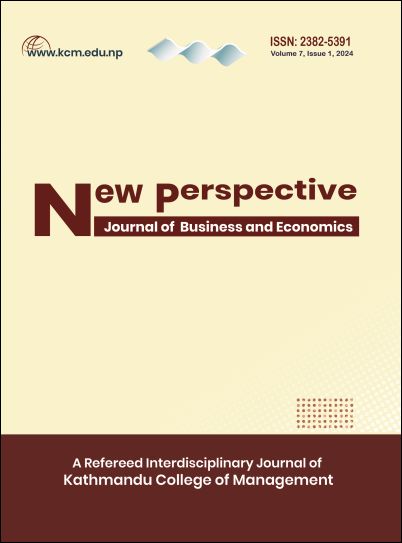Impact of Behavioral Biases Observed on Investors’ Performance in The Nepalese Stock Market
DOI:
https://doi.org/10.3126/npjbe.v7i1.70027Keywords:
anchoring bias, availability bias, loss aversion bias, overconfidence bias, regret aversion, representativeness biasAbstract
The purpose of this research article is to clarify how behavioral biases affect the performance of investors within the framework of the Nepalese stock market. This study employs a quantitative analysis utilizing a purposive and causal research design. Data was collected between April and May of 2024 through a survey conducted with 124 respondents who actively trade in the Nepalese stock market. Secondary data was gathered from existing research papers to support the findings. The analysis reveals that emotional biases, specifically Loss Aversion Bias and Overconfidence Bias, significantly impact investor performance. In contrast, cognitive biases, such as Anchoring Bias, Availability Bias, and Representativeness Bias, showed no significant effect on investor performance. This suggests that while cognitive biases can be identified and adapted, emotional biases may have a more profound influence on trading decisions. Implications the significance of this study extends beyond individual and institutional investors. It provides insights into the importance of understanding various biases that affect investor performance in the Nepalese context. By addressing these biases, investors can improve their decision-making processes and potentially enhance their investment outcomes. This research contributes to the existing literature on behavioral finance by focusing on the specific biases affecting Nepalese investors. It highlights the need for further exploration of these biases to mitigate inconsistencies in investor performance and promote more informed trading strategies in the Nepalese stock market.
Downloads
Downloads
Published
How to Cite
Issue
Section
License

This work is licensed under a Creative Commons Attribution-NonCommercial 4.0 International License.




